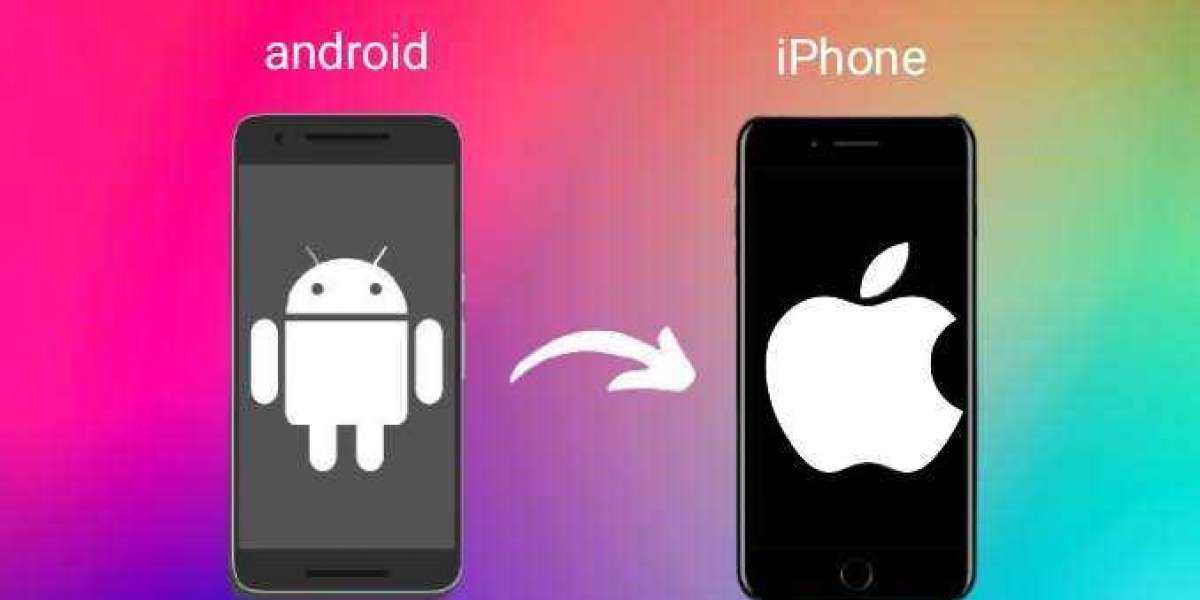Can we use Android applications on iOS devices?
In the world of smartphones, the rivalry between Android and iPhone has been ongoing for years. Each operating system has its own unique features and apps, but the question arises that will an Android application be installed on an iPhone? This article will take you through the intriguing concept of running Android applications on an iPhone. We will explore the technical feasibility, potential benefits, challenges, and frequently asked questions surrounding this idea.
Compatibility and Technical Feasibility:
Android and iPhone devices are built on different operating systems - Android OS and iOS, respectively. These systems are fundamentally distinct in terms of architecture, programming languages, and app frameworks. As a result, running Android apps on iPhones is not a native capability. However, some developers who are curious about this have attempted to bridge this gap through various methods, such as emulation and virtualization. These techniques involve creating a simulated environment within iOS to mimic Android’s runtime behavior, allowing Android apps to run on iPhones. While there have been limited successes in achieving this, the process remains complex and often yields mixed results.
Benefits of Running Android Apps on iPhones:
- App Availability: One of the main advantages of running Android apps on iPhones is access to a wider range of applications. The Google Play Store offers millions of apps, some of which may not have iOS equivalents.
- Flexibility: Android apps cover a diverse spectrum of categories and functionalities. By making them available on iPhones, users could potentially enjoy features that are not present in existing iOS apps.
- Transition Ease: Users who switch from Android to iPhone often face challenges in adapting to the new ecosystem. Running familiar Android apps on an iPhone could ease this transition.
Challenges and Limitations:
- Performance: Emulating a different operating system on a device can lead to performance issues. Android apps may run slower or consume more resources when executed on an iPhone, impacting the user experience.
- Legal and Security Concerns: Apple’s stringent App Store guidelines prioritize security and user privacy. Running Android apps through unofficial methods might raise legal and security concerns.
- Technical Complexity: The process of enabling Android apps to run on iPhones involves intricate technical maneuvers that may not always produce reliable outcomes.
- User Interface Adaptation: Android apps are designed with different user interface guidelines compared to iOS apps. Adapting these interfaces to the iOS environment can lead to inconsistent and clunky designs.
- System Updates: Frequent updates to iOS and Android can disrupt compatibility between the emulated environment and the host device, potentially rendering certain apps unusable.
Frequently Asked Questions (FAQs):
Can I directly download and install Android apps on my iPhone?
No, you cannot directly download and install Android apps on an iPhone due to the technical differences between the two operating systems. Special methods are required to achieve this, such as emulation or virtualization.
Are there any apps available on the App Store that allow me to run Android apps?
There were no official apps on the Apple App Store that allowed you to run Android apps on an iPhone. Be cautious of third-party apps claiming to provide this functionality, as they might not be reliable or secure.
Will running Android apps on my iPhone void its warranty?
While running Android apps on an iPhone might not directly void its warranty, any unauthorized modifications to the device's software could potentially have implications for warranty coverage. It's advisable to consult Apple's warranty policies and terms of service.
Do Android games run as smoothly on an iPhone using emulation?
The performance of Android games on an iPhone through emulation can vary. Some games may run relatively smoothly, while others might experience lag or reduced performance due to the emulation process.
Is there a legal risk associated with running Android apps on an iPhone?
Running Android apps on an iPhone through unofficial methods could potentially infringe upon Apple's terms of service and violate the App Store guidelines. This might have legal implications, and it's essential to consider these risks before attempting to run Android apps on an iPhone.
Conclusion:
While the idea of running Android applications on iPhones is interesting, it remains a complex and challenging endeavor. The technical barriers, performance issues, and potential legal concerns highlight the intricate nature of making two distinct ecosystems work harmoniously. As of now, users seeking to experience Android apps may be better served by exploring alternative solutions or enjoying the benefits of both Android and iOS platforms separately. As technology continues to evolve, who knows what the future holds in terms of bridging the gap between these two smartphone giants





